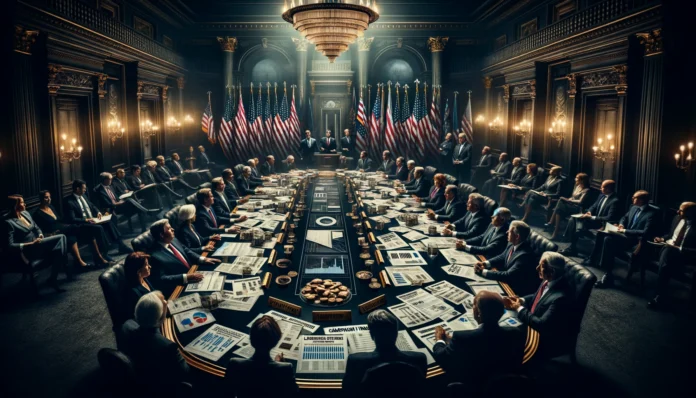In today’s global economy, the intertwining of business and politics has reached unprecedented levels, posing significant challenges and risks not just to the health of democratic institutions but also to the integrity of the marketplace. As corporations increasingly wield political influence and politicians leverage economic power for electoral gain, this symbiosis has become one of the most pressing and controversial issues of our time. This article delves into the complex and often hazardous nexus of business and politics, exploring its implications for society and governance.
The Influence of Money in Politics
The influx of corporate money into political systems is perhaps the most glaring aspect of the business-politics connection. In many countries, campaign finance laws allow businesses to spend vast sums of money supporting candidates and policies favorable to their interests. This financial influence often results in legislation that benefits corporations at the expense of the public interest. For instance, tax breaks, deregulation, and subsidies for industries like fossil fuels and pharmaceuticals have all been linked to substantial political donations and lobbying efforts.
Regulatory Capture: A Hidden Danger
Regulatory capture occurs when a government agency created to act in the public interest instead advances the commercial or special concerns of interest groups that dominate the sector it is charged with regulating. This phenomenon can lead to a decrease in innovation, the erosion of public trust in government, and the implementation of policies that harm the environment, public health, and consumer rights. The revolving door between corporate jobs and government positions only exacerbates this issue, as individuals often shift between roles that involve regulating and being regulated.
The Rise of Crony Capitalism
Crony capitalism, where business success is intertwined with political influence, has seen a rise in various economies around the world. This system undermines fair competition since political connections, rather than efficiency, innovation, or quality, become essential for success. Such practices distort markets and economic policies, leading to inefficient resource allocation and economic bubbles that can pose broad economic risks.
Global Implications: Economic Policy and International Relations
On an international scale, the interplay between business and politics can affect global relations and economic policies. National interests are often pursued through economic means, including sanctions, trade agreements, and tariffs. While such measures are designed to serve political ends, they can also lead to retaliatory actions, trade wars, and economic instability worldwide.
Moving Forward: The Need for Transparency and Reform
To mitigate the risks associated with the dangerous liaisons between business and politics, several measures could be implemented:
- Strengthening Transparency: Governments can enforce stricter disclosure requirements for political donations and lobbying activities.
- Reforming Campaign Finance: Caps on corporate donations and more robust public funding for campaigns could reduce undue influence.
- Closing the Revolving Door: Implementing longer cooling-off periods before government officials can take roles in industries they once regulated.
Conclusion
The dangerous connections between business and politics are not just theoretical concerns; they have real-world implications that can undermine democratic processes and economic fairness. As we advance, the challenge will be to implement and enforce reforms that can disentangle the intricate web between economic power and political influence, ensuring that both sectors work towards the greater good of all society.





